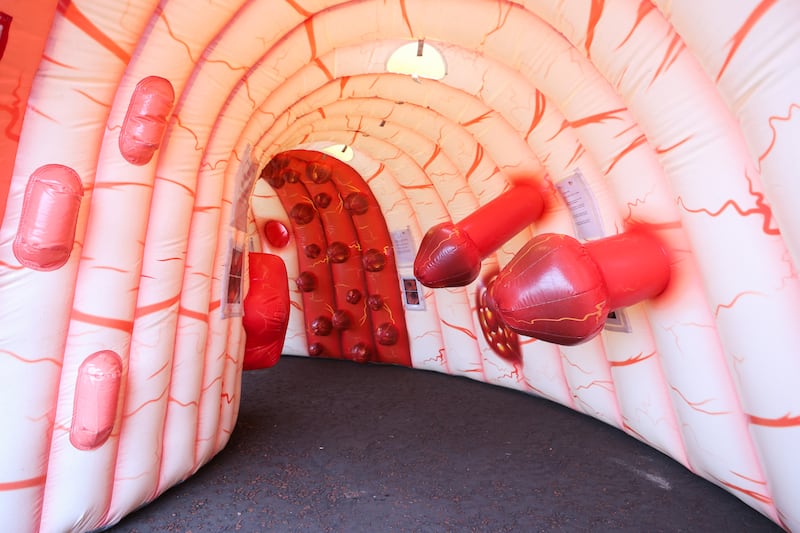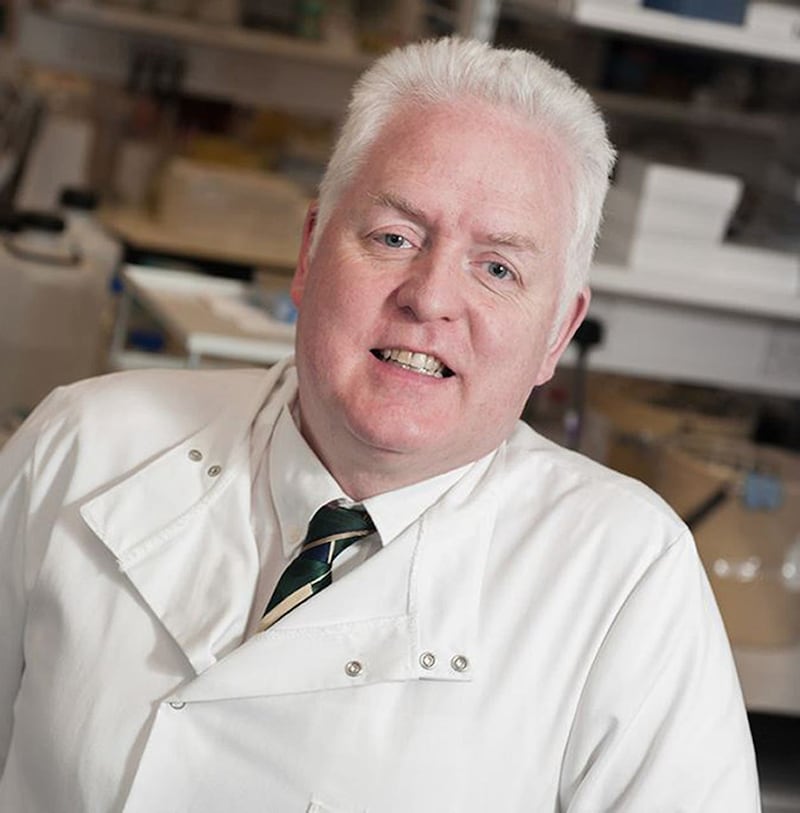Politicians from across the political spectrum in Northern Ireland have signed a declaration to commit to aiming towards a future where nobody dies of bowel cancer in the region.
MLAs from all political parties in Northern Ireland and civil servants, cancer charities and political and health spokespeople gathered at Stormont to sign Bowel Cancer UK’s declaration of support.
The meeting at Parliament Buildings heard from researchers, clinicians and patients about the impact of longstanding issues and the stalemated assembly on bowel cancer services, patients and their families.
The event also featured a giant inflatable bowel to visualise the different stages of bowel cancer.

The political parties signed the declaration to support Bowel Cancer UK’s mission to increase awareness and understanding of bowel cancer.
They also pledged to remove the barriers to people being diagnosed quickly and at the earliest possible stage, get the right treatment and care to every patient and support people to cope better with bowel cancer.
Figures published by Northern Ireland’s Department of Health show that nearly nine in 10 people (84%) living in the region with bowel cancer symptoms are waiting longer than the 62-day target to begin treatment.
This surpassed last quarter’s worst performance on record and is lagging behind the rest of the UK.
Bowel cancer is the fourth most common cancer in Northern Ireland, with nearly 1,200 people diagnosed every year, and the second biggest cancer killer.

Professor Mark Lawler, professor of digital health at Queen’s University Belfast, chairman of the International Cancer Benchmarking Partnership and member of the Scientific Board of Bowel Cancer UK, said the waiting times are “simply not acceptable”.
“Why have targets if we don’t adhere to them?” he said.
“This data and the research intelligence that we have generated highlight how the lack of an implemented cancer strategy is having a disastrous impact on those at risk of bowel cancer and bowel cancer patients in Northern Ireland.
“We need to act now.”

There has not been an executive or assembly functioning at Stormont for over a year due to the DUP’s ongoing boycott of powersharing institutions in protest against post-Brexit trading arrangements.
The Northern Ireland Cancer Strategy was published in March 2022 but cannot be funded or implemented without an executive in place.
Bowel Cancer UK said it believes the lack of political leadership at Stormont is contributing towards long waiting times and a lack of early diagnosis.
Sinn Fein MLA Linda Dillon, who attended the meeting, said the number of patients starting treatment within 62 days of an urgent referral is a “staggering low 17%”.
“This is disgraceful and leads to patients being diagnosed in emergency departments as their symptoms have severely deteriorated while stuck on waiting lists,” she said.
“In the worst cases, people are dying prematurely as a result of late diagnosis.
“Patients on waiting lists cannot wait. Cancer patients cannot wait. They need the assembly and executive restored now and parties working together to fix the problems in the health service, to tackle waiting lists and invest in services.”

Gerard McMahon, head of policy and influencing (devolved nations) at Bowel Cancer UK, said he hopes the pledge is a turning point.
“We are delighted that our political parties have put aside their differences and are united to sign a declaration of hope – a commitment to improve bowel cancer services in the country,” he said.
“Together, we pledge to raise awareness, ensure every patient receives timely care and to prioritise early diagnosis for bowel cancer patients when the disease is easier to treat.
“We hope this is a turning point for patients and their loved ones.”
Mr Barry McAree, colorectal surgeon and Northern Ireland Cancer Network colorectal cancer lead, said a new test could help to alleviate waiting times for a diagnosis.
“Everyone from politicians to healthcare professionals and the general public have their part to play in bringing about a revolution in bowel cancer treatment timelines,” he said.
“NI GPs now have access to one of the most powerful tools for improving the timelines for diagnoses of bowel problems with the introduction of the qFIT poo test, specifically for use in those with symptoms.
“If we use this powerful symptomatic qFIT test properly and hospitals receive bowel cancer referrals only for those who have a positive result or other concerning test or examination findings, we will vastly improve waiting times for diagnoses and treatments of all bowel problems across the region.”
Bowel cancer is the fourth most common cancer in the UK and the second biggest cancer killer, affecting both men and women.
Every 15 minutes someone is diagnosed with bowel cancer – amounting to nearly 43,000 people every year or 120 people every day.
Bowel cancer is treatable and curable, especially if diagnosed early, but the rate of survival drops significantly as the disease develops.
Symptoms can include bleeding from the bottom and/or blood in poo, a persistent and unexplained change in bowel habit, unexplained weight-loss or a pain or lump in the stomach.








